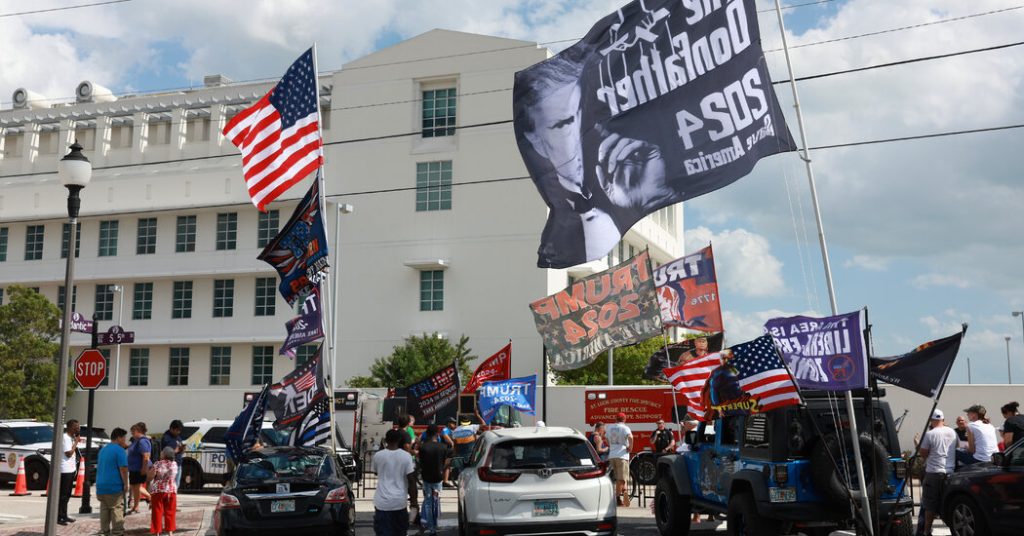Federal prosecutors in former President Donald Trump’s classified documents case are frustrated with the judge overseeing the case, Aileen M. Cannon, due to delays and unresolved issues. They expressed impatience in a 24-page filing, urging the judge to quickly resolve a critical dispute regarding Trump’s defense claiming that he cannot be prosecuted for taking classified documents because he transformed them into his personal property under the Presidential Records Act. The prosecutors criticized this defense as baseless and called into question the judge’s handling of the case which could delay a trial before the November election.
The prosecutors believe that Trump’s defense is unfounded and requested Judge Cannon to reject his motion to dismiss the case based on this argument, in order to allow for appeal if needed. The judge previously expressed doubt about Trump’s defense but then ordered both sides to submit proposed jury instructions indicating a potential acceptance of his defense. This decision was unusual as such issues are typically resolved closer to trial and no trial date has been set yet. The prosecutors are concerned that adopting Trump’s defense in the jury instructions could lead to an acquittal, either by the jury or the judge, without possibility of appeal.
Judge Cannon has handled the case in an unorthodox manner since being assigned in June, delaying legal and logistical decisions and entertaining unusual arguments from Trump’s lawyers. The argument regarding the Presidential Records Act is legally questionable as the act aims to ensure that most records from a president’s term remain in possession of the government, not designated as personal property. Trump’s lawyers claim that the act can be inferred from his physical possession of the documents at Mar-a-Lago, rather than sending them to the National Archives. Prosecutors found no evidence that Trump explicitly designated the records as personal.
The delays in resolving key issues in the case could have significant implications, particularly if pushed past the election and Trump wins, potentially leading to a dismissal of charges. Judge Cannon has yet to rule on a request for additional discovery material about alleged ties between prosecutors and the intelligence community, as well as other pretrial motions by Trump’s lawyers. If prosecutors lose patience, they may seek to have Judge Cannon removed from the case, a process that would involve appealing to the U.S. Court of Appeals for the 11th Circuit.
Overall, the prosecutors are urging Judge Cannon to make a decision on Trump’s defense regarding the Presidential Records Act to prevent potential acquittal without possibility of appeal. The case has been marred by delays and unresolved issues, raising concerns about the timing of a trial before the election and the potential consequences of further delays. Judge Cannon’s handling of the case has drawn criticism for entertaining legally dubious arguments and failing to make timely decisions, adding to the frustration of the prosecutors and casting doubt on the outcome of the case.


